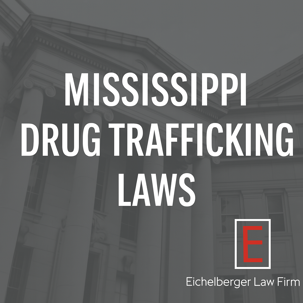What is trafficking?
When we hear the term "drug trafficking," cartels and 1980's Miami cocaine cowboys come to mind. But under Mississippi law drug trafficking has a specific legal definition, and it's different that simple possession or sale. Ultimately, it all comes down to the weight and type of drug involved.
Here is what trafficking is under Mississippi Code Section 41-29-139:
- Possession, sale, or possession with intent to distribute 30 grams or more or 40 dosage units or more of a Schedule 1 or 2 drug (think cocaine, meth, etc.)
- Possession, sale, possession with intent to distribute 500 grams or more or 2,500 dosage units or more of a Schedule 3, 4, or 5 drug (think Xanax, ketamine, low-dose codeine cough syrup)
- Sale or possession with intent to distribute 1 kilogram or more of marijuana or 200 grams or more of synthetic cannabinoids (K2, Spice, etc.)
But there's a step beyond just regular trafficking under Mississippi law. Aggravated trafficking is trafficking in a Schedule 1 or 2 controlled substance in an amount over 200 grams.
What are the penalties for trafficking and aggravated trafficking?
For trafficking:
- 10-40 years in the penitentiary
- The 10 years is a mandatory minimum
- Not eligible for probation or parole
For aggravated trafficking:
- 25 years to life in the penitentiary
- The 25 years is a mandatory minimum
- Not eligible for probation or parole
Can anything be done to defend against trafficking charges?
Yes, of course. These are extremely serious charges, however, and the defense of each case depends heavily on the facts of each case. What might be a defense in one case may not be a defense in another. Also, there are multiple ways to get around the mandatory minimum sentences in these cases.
If you or someone you care about is facing a trafficking charge in Mississippi, don’t wait to get help. Call us at 601‑202‑9981 for a focused, fact-driven defense strategy

